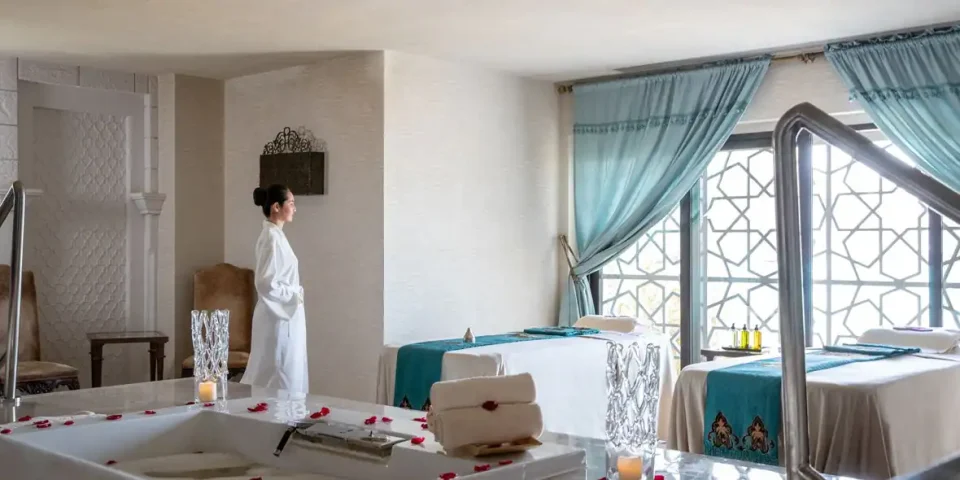Sleep deprivation is becoming an increasing concern with bustling urban life, high-pressure work environments, and daily modern stresses. 32.8% of adults are getting less sleep than recommended, with 40% reporting to fall asleep during the day accidentally at least once a month.
As a result, sleep tourism, a trend focused on travel experiences designed to enhance sleep quality, has emerged as a promising solution.
What is Sleep tourism?
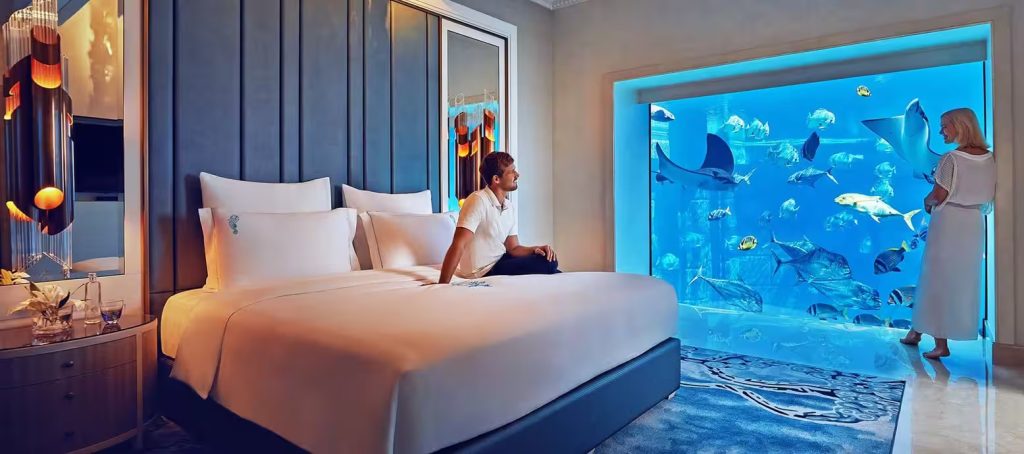
Sleep tourism is a specialised form of travel aimed at improving sleep quality, offering experiences and accommodations that foster rest, relaxation, and recovery. As more people turn to travel for relaxation and rejuvenation, the Middle East is uniquely positioned to cater to this growing demand.
Why is it gaining in popularity?
The demand for sleep tourism is driven by several factors. Firstly, post-pandemic more people than ever have blurred lines between their work and home life. Working remotely, and changing routines have led to busy, high-stress lifestyles.
The pressures of work, family, and societal expectations have contributed to widespread sleep deprivation, which has negative effects on both physical and mental health. Research has also shown that chronic sleep deprivation is linked to a range of health issues, from cognitive impairments to cardiovascular disease.
Sleep tourism in the Middle East
By blending traditional wellness practices with modern sleep science, the region offers an array of opportunities for tourists seeking to escape the stress of everyday life and indulge in much-needed rest.
Serene destinations for restful getaways
The Middle East is well known for its luxury resorts, opulent hotels, and tranquil retreats, making it an attractive destination for those seeking a restorative sleep-focused experience. From the sandy shores of the UAE to the calm deserts of Oman, the region offers many serene and idyllic environments that promote relaxation and deep sleep.
Sleep-enhancing accommodations
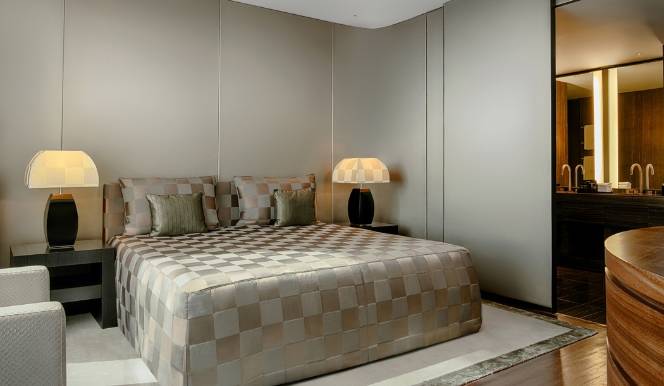
Many luxury hotels and resorts in the region have begun offering specialised sleep services. For example, in Dubai, high-end hotels like the Armani Hotel and the Waldorf Astoria have introduced sleep-enhancing amenities, such as specialised mattresses, blackout curtains, and customised pillow menus. These rooms are designed to create an optimal sleeping environment, catering to the individual preferences of each guest.
Therapeutic spa and wellness offerings
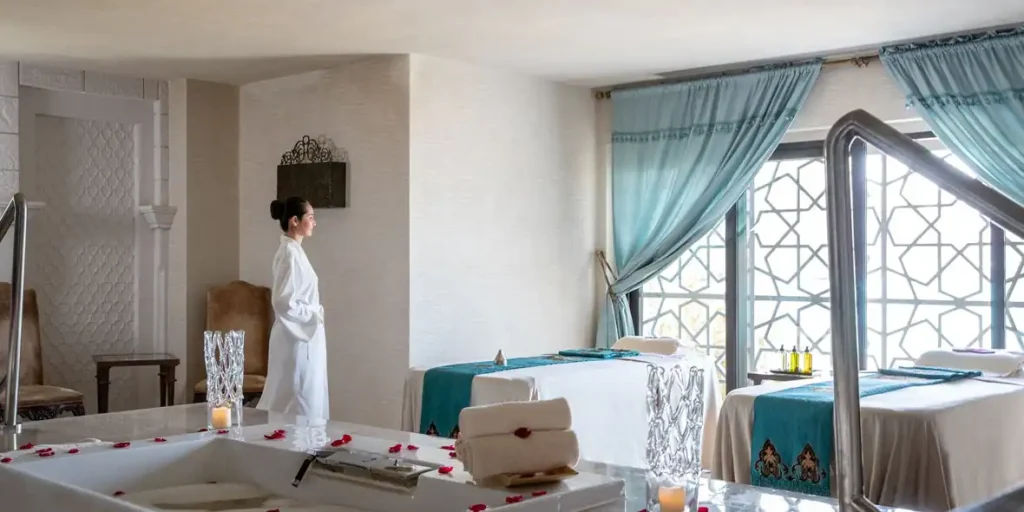
In places like the UAE and Qatar, where modern wellness centers and spas are integrated into luxury resorts, tourists can find treatments that promote better sleep quality. For example, visitors can enjoy therapeutic massages, hydrotherapy, and sound therapy designed to relax the mind and body before bedtime. Some resorts even offer sleep-enhancing packages that include herbal teas, calming baths, and sleep-inducing yoga classes, creating an all-encompassing approach to improving sleep.
Read more: Top 12 wellness resorts in MENA
Desert retreats for total relaxation
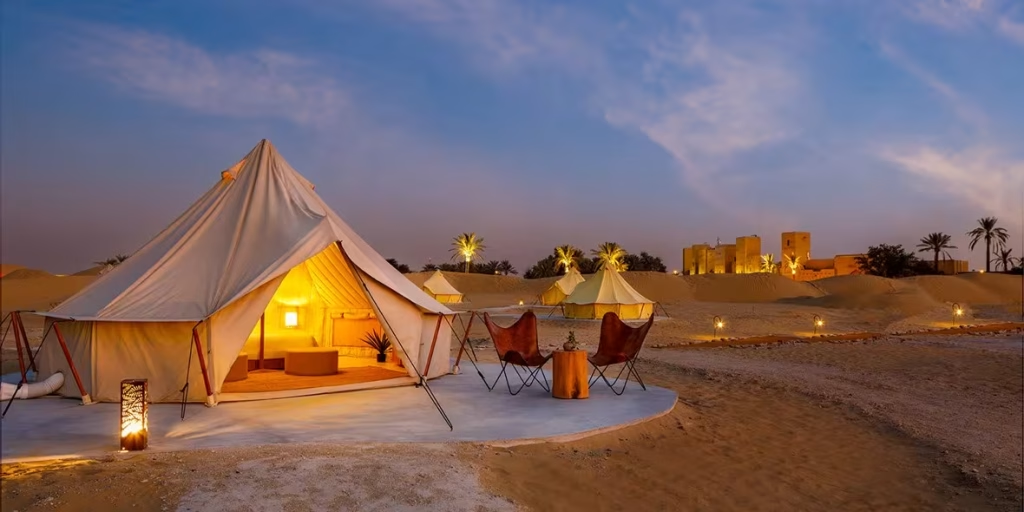
Beyond the bustling cities, several destinations in the Middle East, such as Oman’s desert retreats or the mountains of Lebanon, offer remote and peaceful environments ideal for sleep tourism.
Away from the noise and distractions of urban centers, these serene settings help travellers disconnect from their daily stressors and immerse themselves in tranquility. Activities like stargazing in the desert, guided meditation, and nature walks contribute to reducing stress, which is essential for improving sleep quality.
Leveraging sleep tourism for travel providers
Tour operators, travel agents, and hospitality providers in the Middle East have a significant opportunity to capitalise on the growing interest in sleep tourism. As wellness travel becomes more popular, these service providers can tailor their offerings to cater to the specific needs of sleep-deprived travellers.
Curating tailored sleep tourism Packages
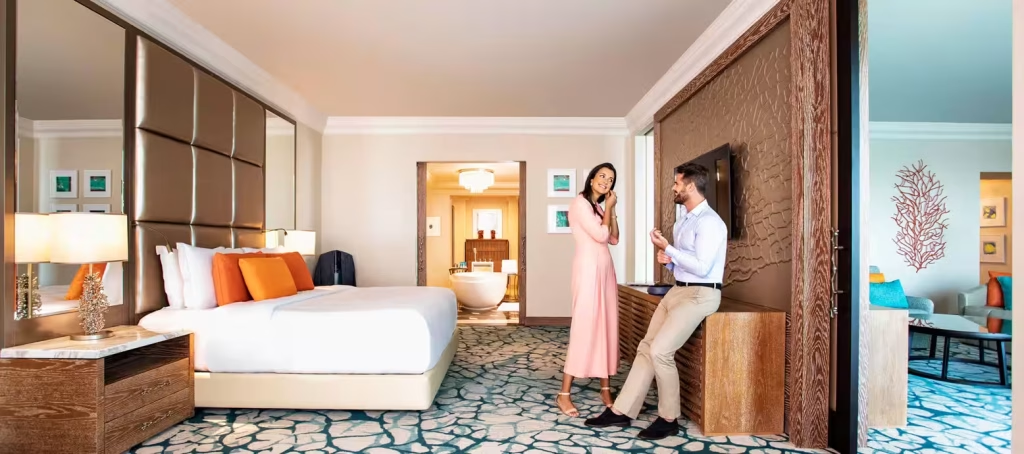
For travel agents, offering sleep tourism packages is an excellent way to diversify their offerings. Curating itineraries that combine luxurious accommodations with wellness retreats focused on sleep could attract health-conscious clients looking for a complete rejuvenation experience.
For example, a package could include stays at wellness resorts in Oman, where guests can enjoy desert wellness therapies and guided meditation, followed by a visit to a luxury hotel in Dubai that offers sleep-enhancing technologies and spa treatments.
Investing in sleep-centric experiences
For hospitality providers, the incorporation of sleep-focused amenities and services is essential. Hotels in the region could take inspiration from global trends by investing in sleep technologies, such as smart beds, sleep-tracking devices, and custom sleep settings.
Some hotels could offer sleep specialists or workshops in relaxation techniques and mindfulness, providing personalised consultations to guests.
Culturally relevant relaxation practices

Many Middle Eastern hospitality providers can differentiate themselves by offering wellness-based packages that incorporate regional traditions into sleep tourism. For instance, the use of calming scents, such as oud and frankincense, can be paired with sleep-enhancing therapies.
Offering culturally relevant relaxation practices, such as guided meditation or sound therapy with regional instruments, can enhance the sleep experience and attract tourists seeking authentic, holistic healing.
The future of sleep tourism
As awareness of the importance of sleep continues to grow, the Middle East is poised to become a key player in the global sleep tourism market. The region’s rich cultural heritage, luxury resorts, and emerging wellness destinations make it an ideal location for those seeking to improve their sleep and well-being.
With the right combination of modern technology and traditional wellness practices, the Middle East can attract a new wave of tourists looking for relaxation, rejuvenation, and, most importantly, rest.

